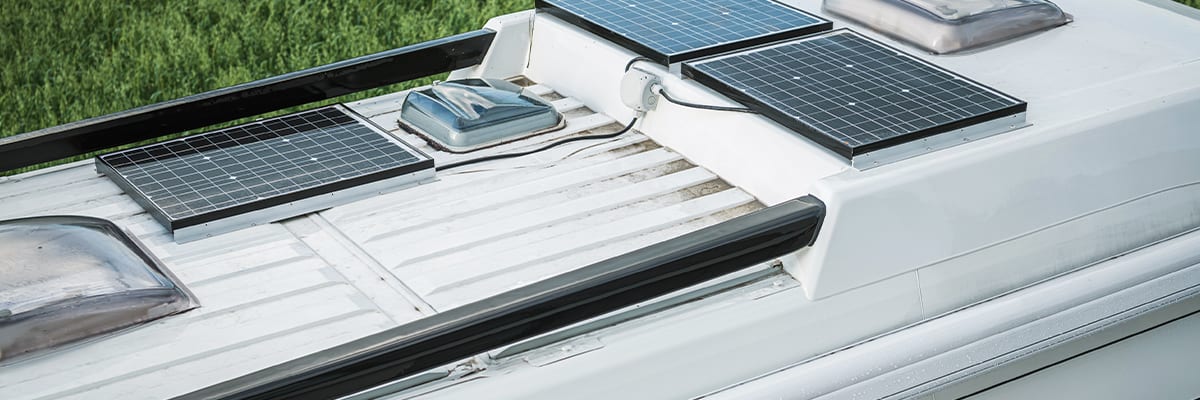
Return navigate_next
Guide to Choosing the Best RV Generator for Adventures
October 21, 2021 *
RV sales were already trending over the past decade as people have become fascinated by the idea of tiny homes, van life, and RV travel, supported by a work-from-home (WFH) lifestyle. People can work anywhere these days, especially in the wake of COVID-19, when RV sales soared.
Yes, that’s right, the lockdowns and restrictions that forced people out of the office and pretty much everywhere else allowed people to hit the road in comfort and style. As a result, people took to the roads on what the RVIA dubbed “pandemic-influenced road trips.” Sales pushed $1 billion in 2020, and there are no signs of slowing.
With the pandemic, many people have reevaluated their priorities, wanting to nail down the elusive work-life balance employers have struggled to provide for a decade. With an RV paired with workplace equipment and a Wi-Fi connection, people can work anywhere they want. Of course, all that work-life balance in an RV requires some power, so a generator is crucial to the operation.

What Do You Need As Far as RV Power?
Before you start shopping for your RV generator, it’s important to take stock of everything you need to power up during your trip. You also want to consider how often and how long you need to power those things up and whether you plan to use auxiliary power, such as solar panels or hookups at campgrounds or other electrical outlets.
In modern RVs, you’ll find complex electrical systems that let you utilize all your favorite modern, electronic conveniences. Some commonly used electronics include:
- Computers
- Television sets
- Gaming consoles
- Refrigerators
- Microwave ovens
- Ventilation fans
- HVAC
The essential thing you need to know is that you need to stay under the total amount of wattage needed to run all your items at a given time. You will never have access to unlimited power when out in your RV, but the right generator can fill any gaps you might experience.
Should You Buy an RV with a Built-In Generator or Buy a Separate Generator?
Some RVs do come with built-in generators, but are they the right choice for you? The answer depends on how powerful the generator is in your RV.
Many RV owners opt to buy an RV with a built-in generator, then buy a second one as a backup. Additionally, sometimes factory-installed generators might come with some flaws, such as being extremely loud. You might want something on the quieter side, so you and your family can sleep peacefully at night.

Here are some quiet-but-mighty models to consider:
- The Honda EU3000iS features a noise level of 25% with a load of 50 dBA and a run time of 25% with a load of 20 hours.
- The Westinghouse iGen2200 features a noise level of 25% with a load of 52 dBA and a run time of 25% with a load of 12 hours.
The Honda is one of the most powerful and quiet machines around, so if it’s peace and tranquility you want, that one is a great option.
The Three Main Types of Generator for Your RV
If you have decided to go ahead and buy a separate generator for your RV, and its lack of noise isn’t the first priority, you might want to get an overall idea of the type of generator you might choose.
1. Diesel Generators
Diesel generators are often the top choice of RV owners because they burn the least fuel and can take around 1.5 gallons of diesel per hour for a 20,000 watts machine. Best of all, diesel generators have the best lifespan, lasting for years. Further, if you own an RV that runs on diesel, it makes sense to choose a diesel generator.
2. Gas Generators
The easy accessibility and affordability of gasoline make gas generators another favorite option for RV owners. However, the downside is that gasoline burns much faster than diesel, and you need more of it, therefore undercutting the savings associated with gasoline over diesel. Additionally, gas generators are worse for the environment, and gas fuel is highly flammable, creating a higher safety risk for you and your family.

3. Propane Generators
Eco-minded RV owners prefer propane since it is gentler on the environment. However, propane generators limit the size of the propane tank in your RV, and it is much more challenging to find propane than gasoline or diesel fuel.
Protect Your RV Generator With Upsie
Once you assess your power needs and determine your budget, you’ll find a broad range of RV generator options to keep your devices and appliances up and running throughout your trip, no matter how long it lasts. Make sure to invest in an Upsie extended generator warranty to support your generator if anything unexpected comes up.
Upsie’s warranties protect generators from common issues, such as mechanical failures, power failures, and heating and cooling issues. With an Upsie warranty, you can enjoy camping and traveling worry-free.
Learn More About Outdoor Tools:
* This article is over 6 months old and may or may not be updated.
